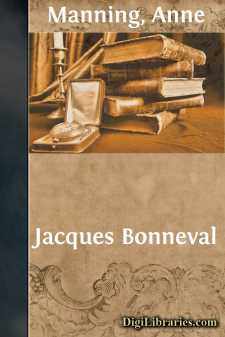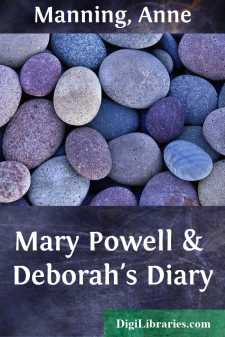Categories
- Antiques & Collectibles 13
- Architecture 36
- Art 48
- Bibles 22
- Biography & Autobiography 815
- Body, Mind & Spirit 144
- Business & Economics 28
- Children's Books 18
- Children's Fiction 14
- Computers 4
- Cooking 94
- Crafts & Hobbies 4
- Drama 346
- Education 58
- Family & Relationships 59
- Fiction 11835
- Games 19
- Gardening 17
- Health & Fitness 34
- History 1378
- House & Home 1
- Humor 147
- Juvenile Fiction 1873
- Juvenile Nonfiction 202
- Language Arts & Disciplines 89
- Law 16
- Literary Collections 686
- Literary Criticism 179
- Mathematics 13
- Medical 41
- Music 40
- Nature 180
- Non-Classifiable 1768
- Performing Arts 7
- Periodicals 1453
- Philosophy 65
- Photography 2
- Poetry 896
- Political Science 203
- Psychology 44
- Reference 154
- Religion 515
- Science 126
- Self-Help 85
- Social Science 83
- Sports & Recreation 34
- Study Aids 3
- Technology & Engineering 60
- Transportation 23
- Travel 463
- True Crime 29
Anne Manning
Anne Manning (1807–1879) was an English novelist and children's writer known for her historical fiction and biographical works. She is best known for "The Household of Sir Thomas More" (1851), which imagines the daily life of Sir Thomas More's family, written as a memoir by his daughter Margaret. Manning's writing often blends historical research with fictional elements, presenting a vivid picture of the past. Her works were popular in the Victorian era, and she also wrote a number of moral tales aimed at younger readers.
Author's Books:
Sort by:
by:
Anne Manning
CHAPTER I. THE FAIR OF BEAUCAIRE. There was magic, to my young ears, in the very name of the Fair of Beaucaire. Beaucaire is only ten miles from Nismes, therefore no wonder I heard plenty about it. It is true, that in my time, the world-famous fair did not exercise so vast an influence on commercial affairs In general, as in the old days, when it was the great market of France; and not only France, but...
more...
by:
Anne Manning
INTRODUCTION In the Valhalla of English literature Anne Manning is sure of a little and safe place. Her studies of great men, in which her imagination fills in the hiatus which history has left, are not only literature in themselves, but they are a service to literature: it is quite conceivable that the ordinary reader with no very keen flair for poetry will realise John Milton and appraise him more...
more...



